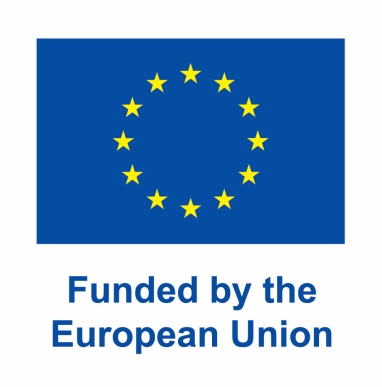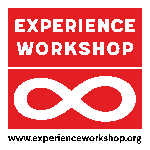Experience Workshop expert at János Garay Primary School in Fót, Hungary
Orsolya Tuba visited the institution as an educational expert from Experience Workshop between 25-26 March 2024, during which she gained a deep insight into the school’s educational processes and the students’ everyday life. During the visit, she had many conversations with the teachers and students of the school – playing games, observing them during their extra-curricular and co-curricular activities. All his observations were made in the light of his experience of the Finnish educational environment, which is characterised by skill development, student cooperation and interdisciplinary approach.
The Stress-Free Way of Learning
Based on the experience of the classroom visits, our expert made suggestions to ensure that the school can effectively provide the least stressful learning environment for its students.

These suggestions included, for example, rethinking the classroom arrangement within the given possibilities in a way that can support student collaboration. Our expert encouraged teachers to focus assessment on individual strengths, achievements, even small steps of progress, rather than on shortcomings. The possibilities of doing this were discussed through concrete examples.
Learning while Gardening
Feedback during the visit confirmed the teachers’ previous perception that outdoor formal and non-formal learning activities have a positive impact on students.
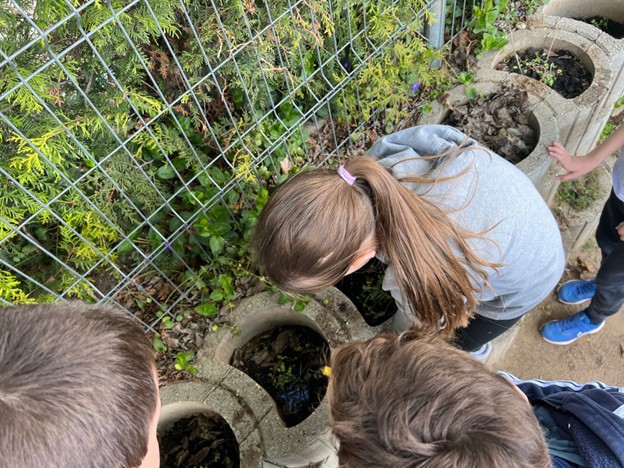
Students planted and took care of flowers in the school garden. The fact that some of the lessons are outdoors and that they can gain hands-on experience through gardening or other physical activities has a positive impact on their motivation.
Vocab Test in a Different Way
In one of the English lessons observed, various playful methods were used, such testing vocabulary through playing cards, which greatly stimulated the learning process.
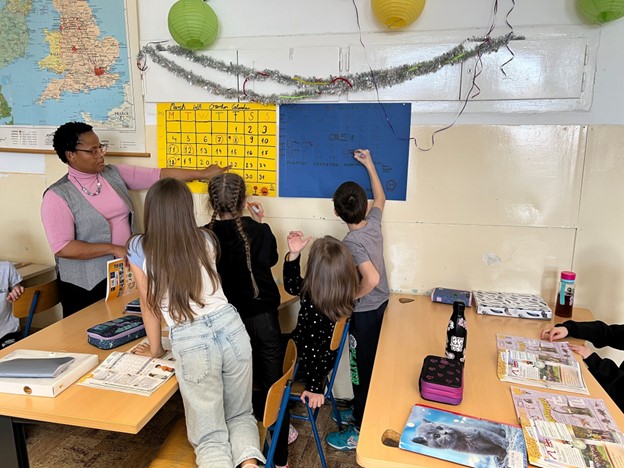
In this game, students had to match Hungarian words with their English counterparts, which helped them practice and develop their vocabulary. Later, they had to solve similar tasks in groups using a phone application. This also encouraged them to learn more words. During the English lessons, students had the opportunity to practice communication and collaboration skills, which is an important step in language learning.
Positive Reinforcement Gives you Wings
Generally speaking, the prescriptive curriculum puts pressure on all actors in education. It is not an easy task to find individual solutions to this, but it is important to strive to do so in order to create a stress-free learning environment for pupils, for example through the creation of an inspiring learning environment or through positive reinforcement. This is also a necessary condition for maintaining interest and effective learning in science lessons.
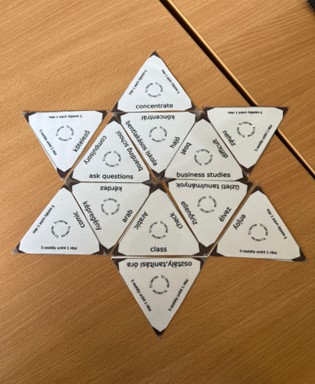
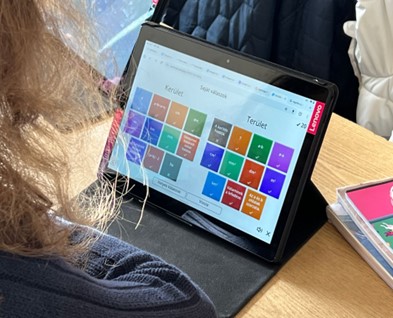
Actively Engaged in Physics
In this physics lesson, which was also very inspiring to the outside observer, the students were divided into groups of 4-5 and each group was given an experiment to carry out independently using their tools.

Például egy csoportnak egy neutrális atommolekulát kellett létrehoznia, a másik csoportnak pedig meg kellett mutatnia, hogyan lehet elemeket elektromosan összekapcsolni és használni. Majdnem minden diák aktívan részt vett a csoportmunka folyamatában. Az óra végén minden csoportnak lehetősége volt arra, hogy bemutassa az eredményeit a többi csoportnak. Az egész tanulási folyamat végig aktív figyelmet fenntartó, motiváló volt.
Move your Feet, Use your Hands, Sharpen your Brain
Our expert saw a great example in a third grade math class of how real group work, multi-sensory information capture, and positive reinforcement support student motivation and effective learning.
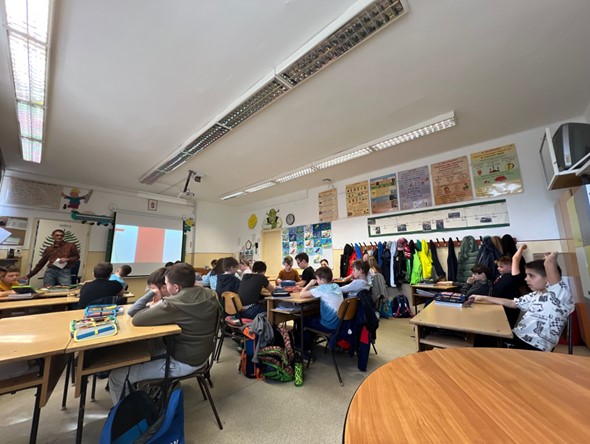
The students were divided into groups of 4-5 and the teacher first instructed them in different ways to increase their concentration skills with jumps, steps and snaps, and then the students had to form three-digit numbers. Then came the real group work with some exercises to solve together. The students were supportive of each other and the teacher allowed the students to discuss the solutions. After good answers, the students were given red marks and after they had 30 red marks, they got a good note in maths.
Professional Background Work
On both days of the expert visit, Orsolya Tuba also held development workshops for the school’s teachers, along with thought-provoking discussions, which gave participants time and space for professional reflection. These workshops allowed everyone to identify what they were struggling with in their classroom to achieve learning success. Together, they reflected on the possible sources of these problems and then on possible ways of solving them. They looked at what each of them considers to be the main purpose of teaching, for example, what is the essence of assessment.
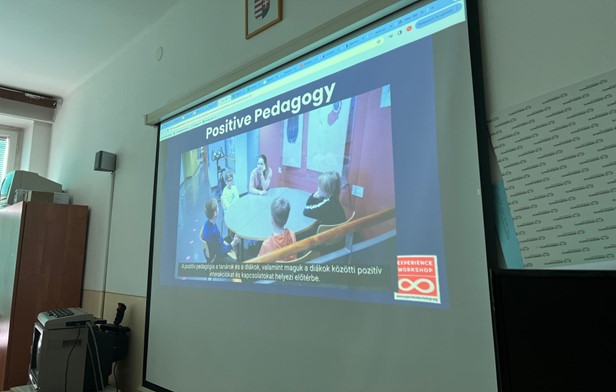
The positive pedagogy and emphasis on student and teacher wellbeing that the Finns have fondly applied has been a guiding principle. Positive reinforcement of students is key to improving the learning experience and increasing student success. In the assessment process, the school has the opportunity to take a more positive and supportive approach. In this way, the school climate can become more positive and supportive, which can contribute to students’ successful academic performance and development.

In addition, teacher well-being has a direct impact on student well-being and learning outcomes. When teachers are happy and balanced, they are better able to support and inspire students. It is important for teachers to communicate honestly and openly with each other and with students, as this helps to build strong bonds and creates an atmosphere of trust in the classroom.

Developing 21st century skills is now an essential part of education. Developing collaborative communication, cooperative skills is a major challenge for educational institutions. In particular, the development of creativity and critical thinking requires more time and reflective involvement, but curricular pressures often mean that opportunities are limited. Teamwork in the classroom is increasingly helping to develop cooperation. In these, particular attention should be paid to ensuring that all students have the opportunity to participate and that respect for each other and cooperative communication are the basis of work. This not only helps students to develop their professional skills, but also gives them the opportunity to build positive relationships.
Photo credits: Orsolya Tuba
The expert visit took place under the Erasmus+ KA1 programme.
Would you like to participate in a similar educational program?
info@experienceworkshop.org
+358452560420
